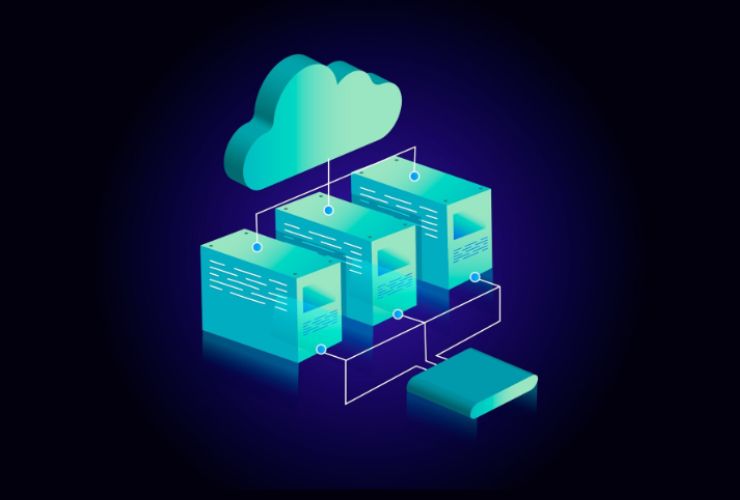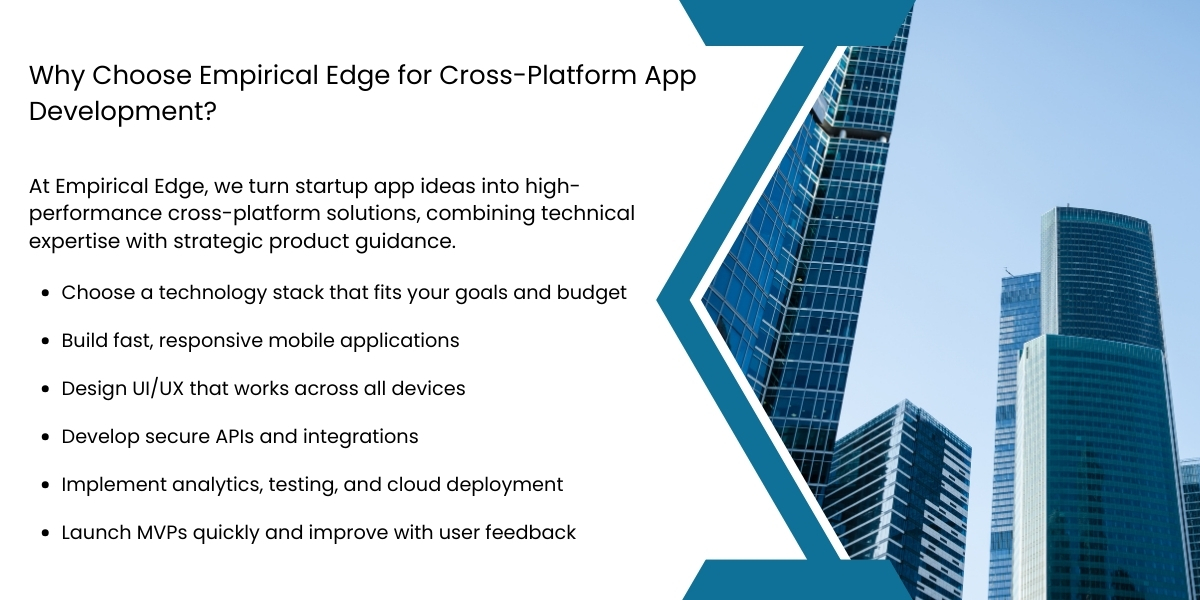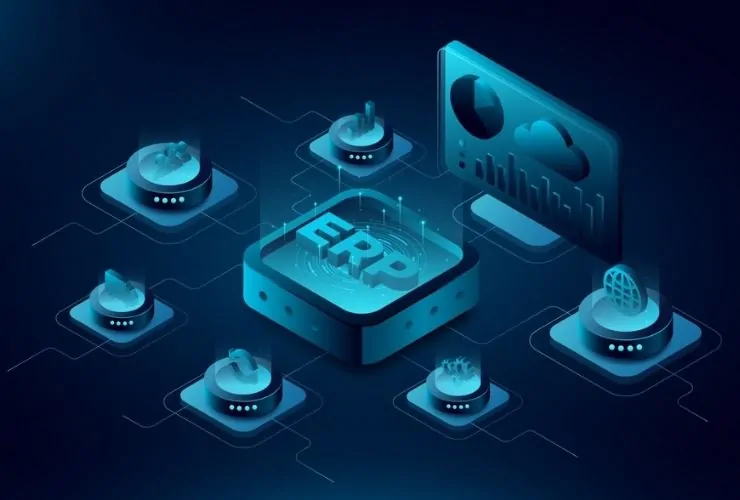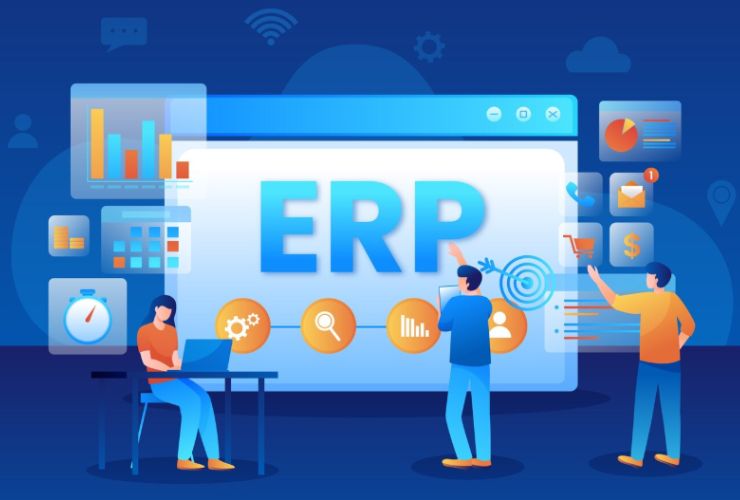As more businesses look to digital transformation, the cloud is now a major strategic priority. Within this context, cloud ERP (Enterprise Resource Planning) integration is key to developing a connected, efficient business. By integrating your cloud-based ERP with other operational business applications, you are creating an efficient data transfer system, improving operational workflow, and increasing operational productivity.
What is Cloud ERP Integration?
Cloud ERP integration refers to connecting your cloud-hosted ERP solution to a multitude of other platforms (e.g., Customer Relationship Management [CRM], e-commerce, supply chain management, human capital management, finance systems, etc.) – essentially any part of the business with a database. This interconnection enables real-time joinery of data to all systems without manual effort, significantly decreasing the burden of data entry and maximizing the effectiveness of the concurrent databases within your organization, reducing human error and increasing assurance that all departments are utilizing the most up-to-date information available.
Why is Cloud ERP Integration Critical?
Operational Efficiency:
Integration enables data to flow between systems, eliminating repetitive manual processes and accelerating business progress. Teams can use time that would normally be spent resolving bottlenecks for strategic work instead.
Real-Time Data Presence:
Cloud ERP systems that are integrated provide real-time presence across the organization. Before, siloed applications dispersed teams and made it difficult to collaborate, track true expenses, and view the business in a unified manner. All departments have instant access to the same current data which enables faster data-driven decision-making and collaboration which is necessary to compete in fast-changing times.
Cost Savings:
Cloud ERP solutions reduce lots of capital expenditure associated with brick-and-mortar IT environments. Properly configured and operating integrated cloud ERP solutions improve ROI by guaranteeing that all of the systems work together, which reduces costs associated with redundancies in software licenses and operations.
Scalability and Flexibility:
Cloud ERP solutions are scalable by design, and your cloud ERP can scale with you as your organization grows. With integrated cloud ERP solutions, the vendor carefully designs the entire software ecosystem; when you add additional applications or scale existing ones, the ecosystem improves instead of disrupting your workflow, allowing you to fully utilize your system(s).
Improved Customer Experience:
Integration possibilities with CRM platforms and social media are endless. Integrated communication between customer-facing teams and back-office staff ensures they complete orders efficiently, quickly solve customer service issues and inquiries, and provide services that follow through from beginning to end.
Popular Methods for Cloud ERP Integration
API Integration: With this option, the use of APIs (Application Programming Interfaces) facilitates communications between a cloud ERP system and other programming. API integrations are a flexible and timely method of data exchange, but implementing them requires technical knowhow.
Middleware Options: Middleware platforms serve as intermediaries to connect various systems, even the ones that might not technically or practically, fit together without the effort of coding each step. Solutions such as Zapier, MuleSoft, or Dell Boomi offer many connectors and features that help connect cloud ERP solutions to other systems.
Custom Options: If your business needs an integration that is unique and tailored to your processes or workflows, custom integrations are often the only choice to appropriately fit the data you need to use. While they can require more project resources than the other options listed, a custom integration can provide the absolute most control of your integration experience.
Things to Remember
While cloud ERP integration is advantageous, there are also challenges to consider:
Data Security and Compliance: When data is transferred between systems, it is essential to make sure that your data remains safe and compliant (e.g., GDPR or HIPAA).
Software Compatibility: Integrating systems is sometimes complicated by differing software versions, data formats, and protocols across the systems.
Complexity and Maintenance: Not only has your business added layers of complexity in working with new software integration, but you now must also add the ongoing business practice of monitoring the system for issues, solution troubleshooting, and software maintenance for integration to prevent new disruptions.
Data Accuracy: As systems become integrated, it is also essential to ensure that the data used between integrated systems remains consistent and accurate to support the integrity of the business.
Best Practices for Successful Cloud ERP Integration
- Define Clearly Defined Objectives: Develop in advance an idea of the possibilities for integration, with workflows, KPIs, and expected outcomes.
- Choose Sufficiently Compatible Tools: Define and select integration tools (platforms) that are fully compatible with your ERP and with your existing business applications.
- Complete Thorough Testing: Before cut-over, perform appropriate testing of the integrations to identify errors, verify data flow, and to confirm performance.
- Continuously Monitor: Monitor tool health, data accuracy, and the integrity of integration with appropriate tools to be able to respond appropriately.
- Engage Experts: Use experienced integration consultants that are fully competent both in respect of your business and the technical considerations to ensure a smooth implementation.
Conclusion
Cloud ERP integration is not just a technical role; it is a strategic move that adopts modern methods of doing business and enables your organization to compete in a sustainable way. By integrating your basic business systems in the cloud you will improve workflows, gain better visibility of data, and provide a more competitive basis for business growth.
Integrate Your Cloud ERP the Right Way
Empirical Edge helps businesses implement secure and scalable cloud ERP integrations that improve efficiency and data visibility.
Frequently Asked Questions
Cloud ERP integration connects a cloud-based ERP system with other business applications such as CRM, eCommerce, finance, and HR systems. This allows automatic data sharing and improves operational efficiency.
Cloud ERP integration eliminates manual data entry and provides real-time access to business data across departments. This improves productivity and supports better decision-making.
Major benefits include improved workflow efficiency, real-time data synchronization, cost savings, and scalability. Integrated systems help businesses operate faster and grow more efficiently.
Cloud ERP systems can integrate with CRM platforms, eCommerce websites, accounting software, supply chain systems, and HR applications to create a unified business environment.
Common methods include API integration, middleware platforms, and custom integrations. Each method offers different levels of flexibility and complexity.














